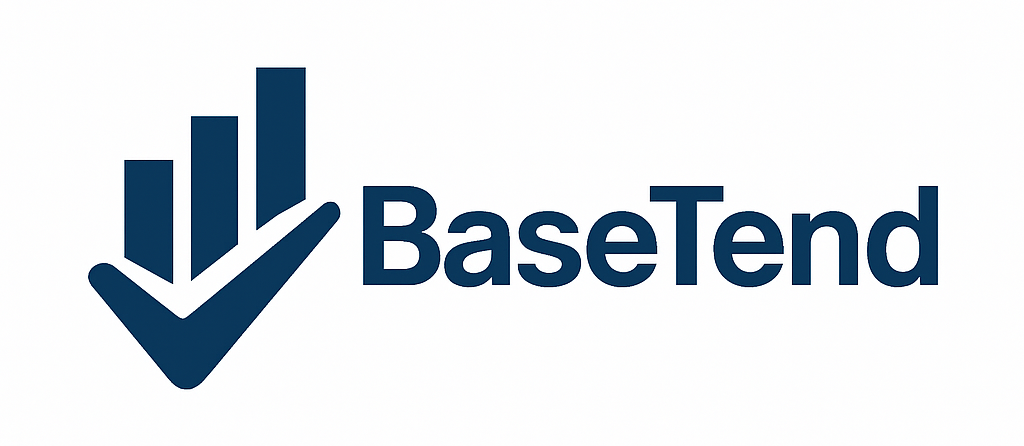Understanding the Difference Between Bookkeeping and Accounting
Why Every Local Business Needs to Understand This Difference
If you’re running a small business in Fredericton - whether it’s a coffee shop on Queen Street, a contractor in Oromocto, or a wellness studio in Hanwell - you’ve likely heard the terms bookkeeping and accounting used interchangeably. Yet, while they’re closely related, they serve two very distinct purposes that can make or break your financial health.
Bookkeeping is the daily discipline of keeping your financial house in order - recording every transaction, reconciling accounts, and maintaining accuracy. Accounting, on the other hand, builds upon that foundation to interpret your numbers, identify trends, and help you make strategic business decisions.
Understanding this difference isn’t just a technical detail - it’s the key to building a stable, compliant, and profitable business in New Brunswick’s competitive and seasonal market.
Bookkeeping: The Daily Financial Backbone
At its core, bookkeeping is about organization, accuracy, and consistency. Think of it as the day-to-day record keeping that tracks every dollar coming in or going out of your business.
Bookkeepers record invoices, receipts, payroll, and expenses - ensuring all financial data is current and categorized correctly. This process creates a clear trail of your business activity, which is essential when it’s time to file taxes, apply for loans, or track performance.
In Fredericton, where small businesses often experience seasonal fluctuations - like increased sales during summer tourism or slower months in winter - accurate bookkeeping ensures you always know your true cash position.
Without it, decisions become guesswork.
A skilled bookkeeper helps you:
- Reconcile bank accounts regularly.
- Record expenses in real time (fuel, supplies, client meals, etc.).
- Track accounts receivable and payable.
- Maintain compliance with CRA recordkeeping standards.
- Prepare financial data for your accountant or tax advisor.
If accounting is the brain of your business finances, bookkeeping is the heartbeat that keeps everything running smoothly.
Accounting: Turning Data Into Strategy
While bookkeeping is about recording what’s already happened, accounting interprets what it all means. Accountants take your bookkeeper’s organized data and turn it into financial reports, tax filings, and strategic recommendations that help guide your business forward.
Accounting answers questions like:
- How profitable was your last quarter?
- Is your business growing, or are expenses rising faster than income?
- What deductions or credits can you claim under CRA regulations?
In Fredericton’s dynamic small business scene, where industries like construction, hospitality, and local retail ebb and flow with the seasons, accounting provides foresight. A good accountant helps you anticipate financial shifts and plan accordingly - whether that means adjusting inventory before winter or budgeting for summer staff.
Accountants also prepare your official financial statements - balance sheets, income statements, and cash flow reports - that banks and investors use to assess your business health.
Put simply:
- Bookkeepers record the past.
- Accountants interpret the present and prepare you for the future.
How Bookkeeping and Accounting Work Together
A strong small business doesn’t choose between bookkeeping and accounting - it uses both together. Bookkeeping provides the reliable data; accounting provides the insights.
At BaseTend, we see this synergy every day with our clients across Fredericton and Oromocto. Businesses that keep accurate records throughout the year have fewer tax-time headaches, cleaner audits, and clearer strategies for growth.
For example, imagine you run a home renovation business in Hanwell. Your bookkeeper ensures all materials, invoices, and subcontractor payments are recorded accurately. Your accountant then analyzes that data to show where your profit margins are strongest - helping you decide whether to focus more on kitchen remodels or exterior projects next year.
Without clean books, even the most experienced accountant can’t deliver accurate advice.
The CRA Connection: Why Proper Bookkeeping Matters for Compliance
In Canada, the Canada Revenue Agency (CRA) requires businesses to keep detailed records for at least six years. These records must show income, expenses, and taxes collected or paid.
Failing to maintain proper bookkeeping can trigger audits, penalties, or delays in tax refunds.
For Fredericton businesses, where GST/HST filings are a regular part of operations, a bookkeeper ensures every transaction aligns with CRA rules - from taxable invoices to eligible expense claims. That means peace of mind knowing you won’t be caught off guard when tax season arrives.
At BaseTend, our team specializes in keeping New Brunswick businesses CRA-compliant all year long, not just at tax time.
The Local Advantage: Why Hiring in Fredericton Matters
Outsourcing your bookkeeping to a national firm might seem easy, but nothing replaces local knowledge. A Fredericton-based bookkeeper understands:
- Local tax rates and provincial filings.
- Regional industries - like forestry, construction, and hospitality - that drive seasonal trends.
- The realities of running a small business in Atlantic Canada’s climate and economy.
From Oromocto’s growing residential sector to Fredericton’s tech startups, local expertise helps tailor bookkeeping and accounting strategies that reflect how businesses here actually operate.
When you work with BaseTend, you’re not just hiring a bookkeeper — you’re partnering with a local financial ally who understands your business challenges and community.
The Cost of Confusing the Two
Many small businesses try to rely on accounting software alone, assuming it covers both roles. However, without consistent human oversight, errors compound over time - miscategorized transactions, missed receipts, unbalanced ledgers.
When that data reaches your accountant at year-end, it often requires hours of cleanup - which costs more than ongoing bookkeeping would have.
That’s why successful Fredericton business owners don’t wait for problems to arise. They build financial systems early, with clear roles between bookkeeping and accounting.
Signs You Might Need Help
You may need professional bookkeeping or accounting support if:
- Your books haven’t been reconciled in months.
- You’re unsure about what’s deductible under CRA rules.
- Tax season causes panic every year.
- You’ve expanded to new locations (like Oromocto or New Maryland) and need accurate regional tracking.
- You spend more time on receipts than running your business.
These are all red flags that it’s time to call in professionals who can keep your business financially healthy - and your stress levels low.
Bookkeeping, Accounting, and Your Business Goals
Clean books and smart accounting aren’t just about staying compliant - they’re about growth. When you understand your numbers, you can confidently decide when to hire, invest, or expand.
Maybe your Fredericton café is finally ready to add a second location in Hanwell. Or your home service company wants to scale operations across Atlantic Canada. Having both bookkeeping and accounting systems in sync gives you the financial clarity to take that next step strategically.
Build a Strong Financial Foundation with BaseTend
In Fredericton and across New Brunswick, the most successful small businesses know that good bookkeeping and accounting are inseparable. Together, they form the financial backbone that keeps your operations compliant, organized, and ready to grow.
At BaseTend, we help local business owners bridge the gap - offering personalized bookkeeping and accounting support that fits the rhythm of Fredericton life. Whether you’re a sole proprietor or managing multiple locations, our local team ensures your numbers always tell the full story.
📞
Book a free consultation with BaseTend today and discover how clean, accurate books can unlock your business’s true potential - right here in Fredericton, NB.


